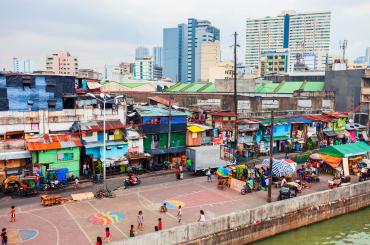
Philippines
-

How the Philippines sequestered carbon while reducing poverty and creating jobs
The National Greening Program, a large-scale tree planting programme in the Philippines, not only contributes to carbon sequestration but also promotes poverty reduction and job creation.
-

How does international migration affect economic development back home?
Income increases for international migrants from the Philippines fostered economic development and investments in education in migrant-origin communities.
-

Brain drain vs brain gain: Does international migration deplete poor countries of skilled workers?
Opportunities for nurses to migrate abroad can increase the supply of educated nurses at home
-

Educating children in emergencies: Global evidence from five randomised trials
Education emergencies require resilient solutions: A cheap phone tutoring programme can be highly effective across contexts, emergency types, and implementer profiles, pointing to its potential scalability
-

The downside of raising aspirations for poor entrepreneurs: Evidence from the Philippines
Encouraging the poor to set higher savings aspirations may backfire if they fall short of these goals, leading to less economic investment
-

How cash transfers can have negative impact on non-beneficiaries: Evidence from Philippines
Cash transfers raised food prices and increased stunting among children from ineligible households in remote and poor areas
-

Do asset transfer programmes lead to child labour? Evidence from Philippines
Asset transfers can expand household-based economic activity, but can also draw more children into the labour force when other labour is unavailable
-

The effects of land reforms on farm size and agricultural productivity
Land reforms, whilst well-intended, misallocate land and labour across farms, thereby reducing average farm size and agricultural productivity
-

Making policies matter
A little information goes a long way towards shifting clientelist electoral systems from vote-buying to policy-based competition